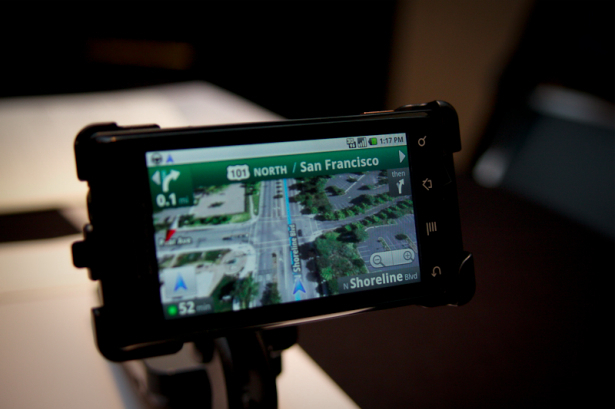
A report from the British Royal Academy of Engineering points out that we’re using GPS for so many important things that we may run the risk of being overly reliant on a system that’s simply not built or designed to be mission critical for important business, personal, or governmental applications. The folks behind the report point out that they’re not trying to claim the sky is falling and they don’t want to spark alarm, but they do point out that a lot of people assume that the global GPS network is somehow highly redundant and highly available, and it’s really not:
Use of space-borne positioning and timing data is now widespread, in everything from freight movement to synchronisation of computer networks.
The academy fears that too many applications have little or no back-up were these signals to go down.
Receivers need to be capable of using a variety of data sources, it says.
Dr Martyn Thomas, who chaired the group that wrote the report, told BBC News: “We’re not saying that the sky is about to fall in; we’re not saying there’s a calamity around the corner.
“What we’re saying is that there is a growing interdependence between systems that people think are backing each other up. And it might well be that if a number these systems fail simultaneously, it will cause commercial damage or just conceivably loss of life. This is wholly avoidable.”
Gags aside about people having to resort to paper maps to find their way to work or their nearest bar or cafe, more and more commercial tracking and location-based systems and businesses are tied heavily to GPS as a way of plotting location, seeing multiple customers or multiple products at the same time, and even to – as the FAA is rightfully trying to do – use the system to shorten flights, keep planes away from one another, and overall improve the way air travel functions.
Still, all of these improvements are great as long as the systems that support them are robust and ready at all times. The report calls out weak signal and lack of redundancy as easily exploitable holes in the global GPS network that can be used for nefarious purposes or accidentally cause issues:
The RAEng report claims to be the first assessment of just how many applications in the UK now use GPS signals and their like, and their probable vulnerability to an outage of some kind.
It says sat-nav signals are relatively weak – equivalent to receiving the light from a bright bulb at a distance of 20,000km – and this leaves them open to interference or corruption.
Possible sources include man-made ones, such as deliberate jamming, and natural hazards, such as solar activity. Both can introduce errors into the data or simply take it out altogether.
“The key thing for us is the concept of cascade failures,” said report co-author Prof Jim Norton, the president-elect of BCS – the Chartered Institute for IT.
“This is what we characterise as accidental systems – systems that exist, but people don’t recognise they exist because they don’t understand the interdependencies. There will be a single common point of vulnerability and failure, but it’s not obvious.”
It’s an interesting point that the RAE is making, and one work considering in-depth. Are businesses using GPS too freely and openly without really paying into the system that keeps the global network alive and well? We have entire services that base their business model off of being able to see what’s happening around the world at all times, but improvements to the global GPS network – operated by multiple countries – is definitely in need of upgrades, even if it’s functional today.
What do you think? Are we, as a society, over-reliant on GPS? It’s one thing to say everyone should keep a paper map in their cars in case of emergency, but what about the commercial implications? Should companies that leverage GPS be required to pay into a GPS “maintenance fund” for improvements and upgrades? Leave a comment with your thoughts.
